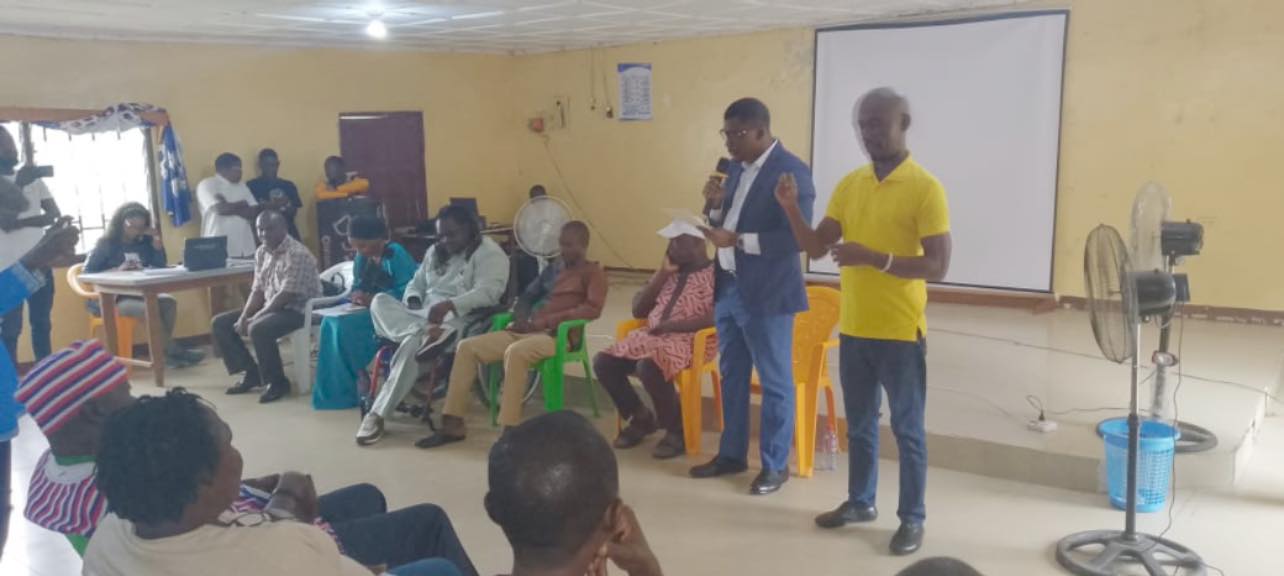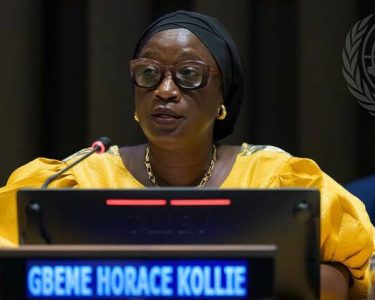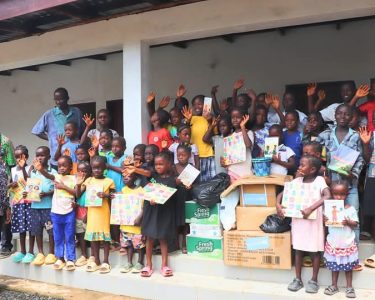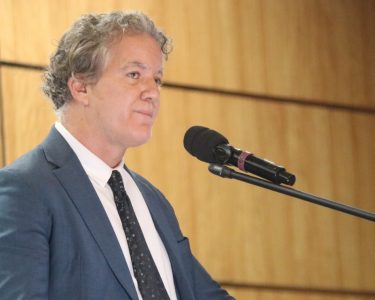At a pivotal nationwide consultation with People Living with Disabilities (PWD) for Liberia’s National Development Plan, the Deputy Minister for Research, Policy, and Planning at the Ministry of Gender, Children, and Social Protection, Hon. Curtis V. Dorley, underscored the Government of Liberia’s commitment to ensuring an inclusive development agenda.
Speaking at the Women’s Center in Gbarnga City, Hon. Dorley reaffirmed that the ARREST Agenda for Inclusive Development (AAID), Liberia’s forthcoming national development framework, will be people-centered and prioritize gender equality, inclusivity, and the rights of vulnerable citizens.
As the Government of Liberia (GOL), under the leadership of H.E. President Joseph N. Boakai, Sr. prepares the AAID for the next five years, Hon. Dorley highlighted the administration’s commitment to fulfilling its obligations under international and regional treaties on gender equality and social inclusion. “The AAID will not only be a framework for inclusive development but also ensure a more equitable distribution of national wealth, with a rights-based approach to national development,” Dorley emphasized. He added that this effort aligns with Liberia’s Vision 2030, the African Union Agenda 2063, and the global Sustainable Development Goals (SDGs).
Deputy Minister Dorley pointed out that the AAID will focus on addressing risks of inequality and vulnerability in order to improve livelihoods across Liberia, especially for vulnerable populations such as PWDs, women, children, and the elderly. He stressed that Goal 5 of the AAID is dedicated to developing necessary programs and structures to empower these groups. The plan also calls for the full decentralization of ministries, agencies, and commissions responsible for social protection, ensuring they are equipped to serve all Liberians, regardless of geographic location.
Commenting on the Ministry of Gender, Children, and Social Protection’s role, Mr. Dorley noted that the Act of 2013 established the Ministry as the key national institution responsible for promoting gender equality and addressing the needs of vulnerable groups. “Our mandate is clear: to advise the Government on all matters affecting people with disabilities, the vulnerable, and disadvantaged, and to ensure that gender perspectives are central to policy and resource allocation,” he said. He further explained that ongoing consultations like this one enable the Ministry to properly coordinate and ensure that gender and social protection issues are reflected in both the AAID and county-level development agendas.
As the consultation drew to a close, Deputy Minister Dorley encouraged all participants, including PWDs, to actively contribute by identifying their priorities and opportunities for improvement. He stressed that only through their engagement and input could the national plan truly reflect the needs and interests of all citizens, particularly the most vulnerable.
The nationwide consultations will continue across the country as the government seeks to build an inclusive framework that leaves no one behind, ensuring that all citizens, regardless of gender or physical ability, have a voice in shaping Liberia’s future.
“I encourage you all to be positive and to actively contribute by identifying your priorities and opportunities for advancement,” Hon. Dorley concluded.






